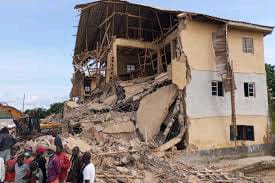The International Monetary Fund (IMF) forecasts that by 2030, half of the increase in the global labor force will come from sub-Saharan Africa, requiring the creation of up to 15 million new jobs annually.
The Fund said the region needed to create jobs to balance its growing population. “Sub-Saharan Africa urgently needs to create jobs for its growing population, especially in fragile and low-income countries.
The region’s labor markets face high informality and obstacles to job creation, resulting in too few good jobs “Tackling this requires productivity growth across all sectors, including in the informal sector.
Policies should focus on supporting workers, removing barriers to business growth, and encouraging a shift toward higher productivity industries that can create more sizeable employment opportunities,” it said.
However, the Fund said creating quality jobs in sub-Saharan Africa required addressing multiple challenges. IMF made the disclosure in the African region Outlook report October 2024.
It noted amongst others that “Sub-Saharan African countries are implementing reforms and much needed reforms to restore macroeconomic stability, and while overall imbalances have started to narrow, the picture is varied.”
The report outlined three key hurdles faced by the continent. According to IMF, “Policymakers face three main hurdles. First, regional growth, at a projected 3.6 per cent in 2024, is generally subdued and uneven, although it is expected to recover modestly next year to 4.2 per cent.
Second, financing conditions continue to be tight. “Third, the complex interplay of poverty, scarce opportunities, and weak governance–compounded by a higher cost of living and short-term hardships linked to macroeconomic adjustment- -are fueling social frustration.
“Within this environment, policymakers face a difficult balancing act in striving for macroeconomic stability while also working to address development needs and ensure that reforms are socially and politically acceptable.
Protecting the most vulnerable from the costs of adjustment and realizing reforms that create sufficient jobs will be critical to mobilize public support.” It noted that over the past decade, growth in sub-Saharan African resource-intensive countries (RICs) had been less than half that in non-RICs; and fuel exporters have fared particularly poorly.
“This divergence has been largely driven by a dramatic terms-of-trade shock experienced by RICs, and especially fuel exporters.
Further, the impact of these shocks on RICs was exacerbated by structural vulnerabilities, including weak governance and management of resource revenues, a poor business environment, limited human capital, and a high incidence of conflict and fragility.
Please follow and like us:

 2 hours ago
5
2 hours ago
5







